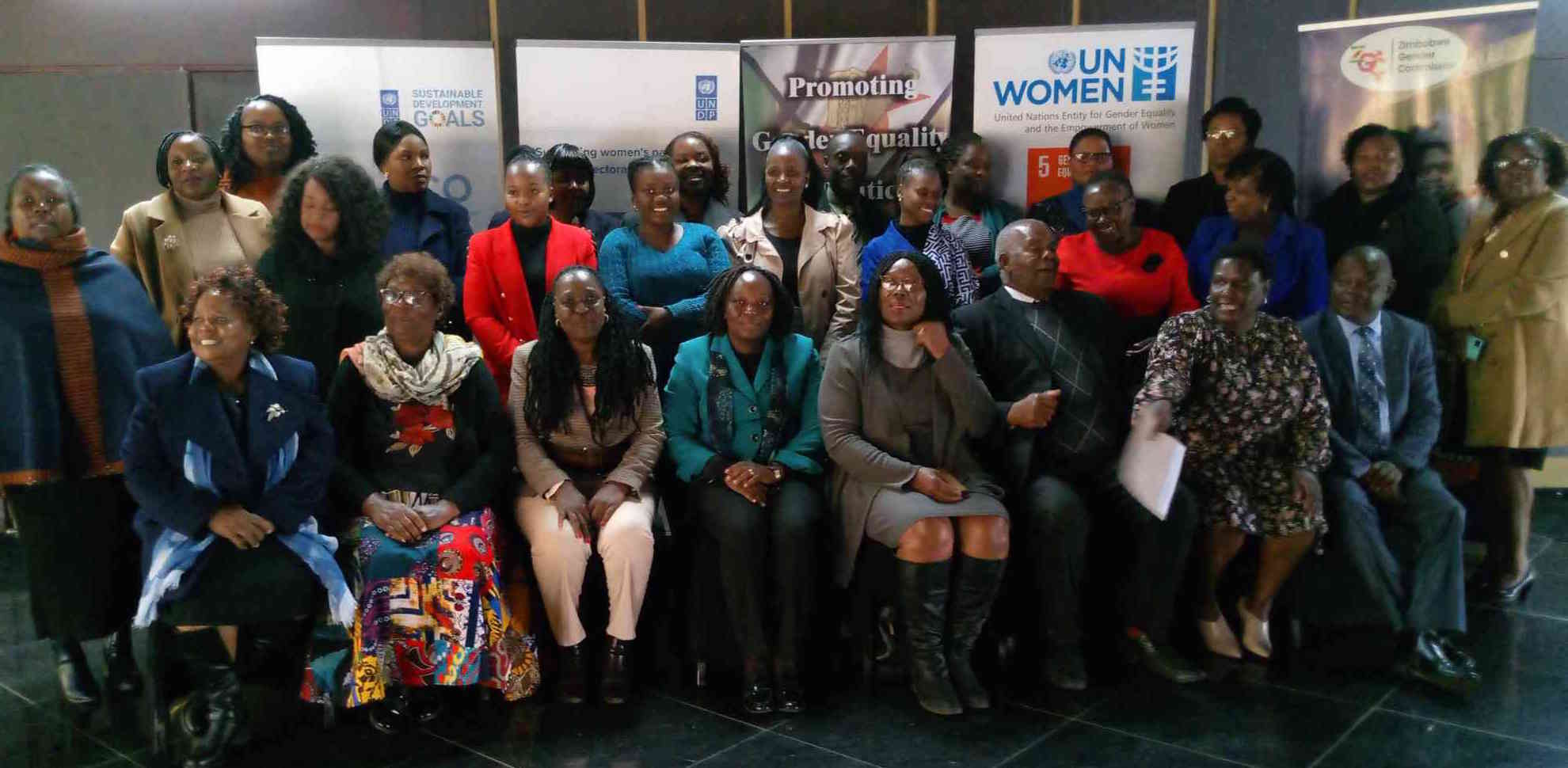|
Getting your Trinity Audio player ready…
|
The Gender Observatory has been commissioned as a mechanism for monitoring gender issues during the 2023 Harmonised Elections.
In her address, at the Zimbabwe Gender Observatory Sensitisation Workshop and Commissioning of 2023 Gender Observatory Members in Harare today, Commissioner Margaret Mukahanana-Sangarwe, the Chairperson of the Zimbabwe Gender Commission (ZGC) appreciated the financial support from the European Union and the Japanese Government through the ZIM-ECO project.
“The financial support we are receiving has made it possible for the Commission to operationalise the 2023 Gender Observatory. Further, I also want to appreciate the technical support we are receiving from UN Women and UNDP under the same project. This support can never be underestimated as it will go a long way in ensuring gender-responsive elections. Allow me to acknowledge ZEC, our sister Commission, which has accredited ZGC Commissioners and Staff, as local observers for the election,” she said.
The Zimbabwe Gender Commission is established in terms of sections 232 (c) and 245 of the Constitution of Zimbabwe and operationalised through the Zimbabwe Gender Commission Act [Chapter 10:31]. Section 246 of the Constitution spells out the specific functions of the Commission as follows:
- to monitor issues concerning gender equality to ensure gender equality as provided in this Constitution;
- to investigate possible violations of rights relating to gender;
- to receive and consider complaints from the public and to take such action in regard to the complaints as it considers appropriate;
- to conduct research into issues relating to gender and social justice, and to recommend changes to laws and practices which lead to discrimination based on gender;
- to advise public and private institutions on steps to be taken to ensure gender equality;
- to recommend affirmative action programs to achieve gender equality;
- to recommend prosecution for criminal violations of rights relating to gender;
- to secure appropriate redress where rights relating to gender have been violated; and
- to do everything necessary to promote gender equality.
Pursuant to its monitoring role, the Commission implements various interventions to address gender gaps across the spectrum while promoting social justice, inclusive participation, and equity in all processes including politics and elections. In 2018, the Zimbabwe Gender Commission established its first Gender Observatory to monitor gender issues in the political and electoral domain.
Lessons learned from the 2018 Gender Observatory revealed that there was a need for greater coordination amongst Gender Observatory members, robust mechanisms for documenting cases of violence against women, the need to clearly define the roles and responsibilities of Gender Observatory members, and the need for a Call Centre to receive gender related electoral complaints in real-time.
The lessons learned from the 2018 Gender Observatory, have thus informed the resuscitation of the 2023 Gender Observatory which now has an expanded mandate comprising: the establishment of a Gender Command centre with a call centre, periodic coordination meetings, media monitoring, and election monitoring/observation.
“It is our hope that through the operationalisation of all the components of the Gender Observatory will become an effective tool for monitoring and responding to gender issues during the upcoming elections. In line with the best practice of election monitoring, ZGC anticipates using the Elections Cycle Approach in this endeavour,” she added.
In his remarks, the ZGC Vice Chairperson: Mr Obert Matshalaga said by keeping a watchful eye on the electoral process, the Gender Observatory can ensure that gender equality and women’s rights, as espoused in the Constitution, are upheld, and any instances of violence or discrimination are promptly addressed.
He encouraged members of the observatory to remain vigilant in its monitoring efforts, ensuring that gender issues are given the attention they deserve and that the voices of women across their diversity and other marginalized groups are not only heard and respected but influence the electoral processes beyond this year’s elections.
Speaking on the same occasion, Loveness Makonese, the Zimbabwe UN Women’s Deputy Country Representative said gender observatories are fundamental in collecting data and providing responses to cases of violence against women in politics, an issue that is becoming more and more prevalent as the harmonised elections beckon.
“As UN Women, we are confident that the outcomes of this meeting will bring us one step closer to women’s equal participation and decision-making process without barriers, without fear but with the full support of an enabling gender-responsive environment,” Makonese said.
